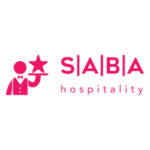Messaging and fast mobile connections mean that all of us have become accustomed to “right here, right now” kind of communication. For accommodation providers that don’t want to spend huge amounts of money and time answering repetitive questions, chatbots are indispensable. However, many hotels remain hesitant to take the step.

Why does hospitality need chatbots?
There are few industries that rely on information as much as hospitality. Information drives the guest journey from end to end: from the moment they are looking around for new destinations to the moment they are leaving the hotel doors. Guests want real-time answers to their questions both during and out of office hours.
This need for information has only grown with the pandemic. Travelling has become much more insecure and guests want to be reassured they’ll be safe and know what to expect. To meet this need in an efficient way, chatbot messaging has become a must. Thanks to messaging and fast mobile connections simple and straightforward questions will be answered 24/7, all 365 days of the year. Long queues at the reception can be avoided, making space for guests with more complex requests.
If chatbots are so useful, why aren’t hotels implementing them right now? 5 common reasons.
Although this sounds all very convincing, there are still some reservations when it comes to the implementations. Read here below some of the main arguments of why hotels are not onboarding a chatbot and why they actually should.
1. “We are a luxury hotel, chatbots don’t fit our standards” – Actually, luxury hotels should be the first ones to install a chatbot, since they should take the lead when it comes to innovation and be a role model for other hotels. Guests will soon enter a hotel and expect real-time communication with fast mobile connections and if by then luxury hotels do not have the right technology installed, it will reflect poorly on them.
2. “Hospitality is all about personal contact” – All the bot’s answers are customizable so they can respond exactly like you want them to: formal, humorous, etc. You are not eliminating personal contact by implementing a chatbot. Whereas before your front desk staff was busy responding to simple and repetitive questions, they will now have time freed up to give your guests a warm welcome.
3. “We don’t have the time” – Implementing a chatbot doesn’t have to be a long term project. The Guest Experience Automation chatbot comes with a prefilled knowledge base, so you immediately have over a thousand questions and answers available. By collecting your information online and using customizable answers, your chatbot is ready to go once enabled.
4. The information is scattered – Many hoteliers have their information scattered over different departments and often there are discrepancies between what one department says and the other. Having a Knowledge Base will help you centralize all your data so your whole team and chatbot can share the correct information. This will also boost the confidence of your team when responding and reassure you that the right details are shared with your guests.
5. “How does this integrate into my operations?” – Installing a chatbot alone is of course not enough. You need to make sure that any guest requests going through your bot are handled and not getting lost. Implementing Auto Case Management will make sure the right people are informed when a guest request comes in.
At first glance, the middle of a pandemic might not seem like a good time to invest in new technologies and in fast mobile connections, however, now might actually be the perfect time.















